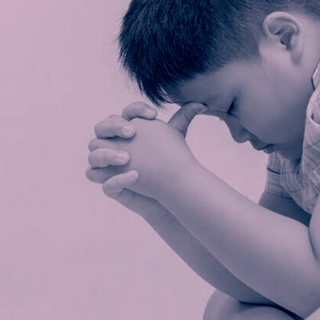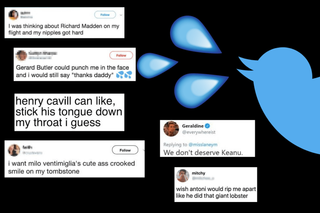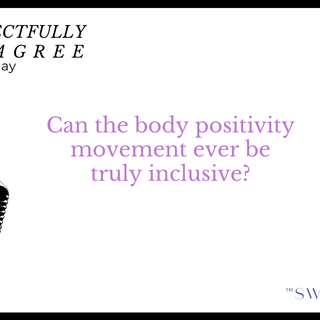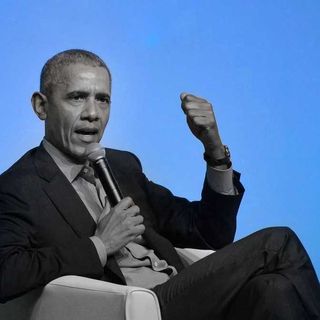
Thirst Tweets Walk a Thin Line Between Sexual Expression and Objectification
Videos of male celebrities getting visibly uncomfortable reading out sexually explicit tweets from their women fans are gaining popularity.

“I’d let Shawn Mendes father every single egg in my nonexistent uterus laaawd.”
“My my my, I need Troye Sivan to sit on my face, like right now tbh.”
“I feel drenched not because of the water in the pool, but because of Vicky Kaushal.”
Canadian singer-songwriter Shawn Mendes stops reading a tweet midway, and says “…there’s a line and she crossed it.” “I feel like … really flushed,” says Troye Sivan, a YouTuber-turned-popstar, while also turning visibly red. Indian actor Vicky Kaushal tries to laugh through the misery of this exercise and exclaims, “How are they so confident posting these tweets online? I don’t have the confidence to read it.” There are millions and millions of views on these videos, just to see celebrities get queasy in their chairs. Get uncomfortable, but not uncomfortable enough to vocalize it, just enough to joke about it. Even comedian Hasan Minhaj gives up, screaming, “I’m a prude. This is insane — what are people doing these days …?”
These examples are all from a genre of videos of celebrities reading ‘thirst tweets.’ ‘Thirst tweets’ are considered to be an art of millennial flattery, using kinky language mixed with existential dread. The main objective of all of these videos is to capture the reaction of a male celebrity, like Shawn Mendes, Nick Jonas, Vicky Kaushal, or Siddhant Chaturvedi, who are often described as a ‘heartthrob,’ or the ‘internet’s favorite boyfriend,’ or the sexualized twitter nickname ‘daddy.’ It is a no-brainer that a stranger expressing their innermost sexual desire publicly online is meant to make anyone uncomfortable, but the only allowed or possible response for the celebrity put in the spot seems to be awkwardness, discomfort, and varying degrees of shock.
But, if that stranger is a woman, no matter how provocative or desensitized the language is, the internet tolerates the tweet.
In a reversed gender situation, in all likelihood, the same content would have elicited a different response. If a virtual male stranger was tweeting his imagined sexual fantasies for Taylor Swift or Beyoncé, the moral balance of the universe would be disturbed. It would garner severe flak, and rightfully so. The probability of it being passed off as a harmless joke is nearly zero, and we would not just be passively cringing, but actively outraging. Those women will not have to take it in their stride, react politely, and lighten up the situation with a joke — and that says a lot about how masculinity and objectification are perceived.
It’s what happens when we exist in a social culture that’s progressive on a surface level, but still subconsciously adheres to the traditional idea of what it means to be a man: Strong! Violent! Powerful! Too tough to be bothered by pesky emotions! There is an unspoken expectation of all these men to just embrace the discomfort and only identify as a high-fiving alpha male who prioritizes sexual desirability as the ultimate quality in a man. Reporting inappropriate behavior isn’t as natural a male trait as shrugging it off for an exaggerated compliment. Comedian Hasan Minhaj is made to feel like a prude for condemning inappropriate behavior, and singer Shawn Mendes apologizes for not being able to finish reading a tweet that objectifies him. By disallowing a man to be uncomfortable and vulnerable, we are reinforcing damaging norms and stereotypes about masculinity, counterproductive to all the efforts made towards gender equality.
In other words: the objectification of men and women is viewed and received differently. Historically, the media has been held responsible for presenting women hypersexualized versions of themselves, mere objects of desire for male sexual gratification. Such portrayals implicitly deny women’s agency and encourage exploitative attitudes towards women; in extreme cases, even sexual violence. On the other hand, objectification of a man is viewed radically differently because of the existing power inequalities in our society. A man’s agency is much less likely to be overridden by a woman, and woman lusting after a man isn’t inherently perceived as a threat. This isn’t to trivialize sexual violence committed against men, but the cases are relatively disproportionate in comparison. Lust, like everything else, is still rooted in power relations of systemic patriarchy.
Related on The Swaddle:
Late-Night Tweets Can Tell How Lonely a User Is: Research
However, if as a society, we intend to grow more and more okay with damaging stereotypes about masculinity and objectification of men, we would be confronted with an extremely complicated situation in which occurrences of sexual violence would be all-pervasive and irrefutable across genders.
The popularity of the ‘thirst tweet’ video read-out could be because of the novelty attached to it, suspects Gunjeet Sra, editor of Subculture media. Objectifying women warrants no shock value anymore, so the media has resorted to making the strange familiar, by objectifying men instead and monetizing such content. “Traditionally, women haven’t been able to express their desires, especially publicly. So the whole idea of it as a public expression by making it a caricature is a kind of subversion, perhaps to rid themselves of the accountability that comes with making these often lewd comments,” says Sra. If social media is a microcosm of our real world, then ‘thirst tweeting’ is perhaps a deeply disturbing consequence of our inability to create safe spaces for women to express their desires without being shamed for it. The highly exaggerated and farcical nature of these tweets distances them from reality, or of having any real-life consequences. The implication is this: it is a silent but misguided rebellion to demolish existing structures of decorum by objectifying men as equally as women.
To establish a narrative of equality in a highly unequal world involves “unlearning of the inherent dominative mode of communication,” as culture theorist Raymond Williams said. Between tweets, retweets, and likes, our cultural discourse is being shaped, generationally and socially. Women’s voices need to be heard, but whether we do it respectfully, or indulge in thirst tweeting to ‘stand out,’ is a choice all of us need to consciously make for ourselves.
Akshaya Chandrasekaran is a journalist based in Pune. She has a penchant for politics, philosophy, and, unfortunately, puns.
Related


Respectfully Disagree: Can the Body Positivity Movement Ever Be Truly Inclusive?
